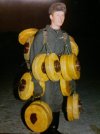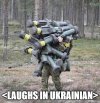2/ Tatarstan formed two volunteer battalions, Alga and Timer, last summer. The regional government advertised for volunteers and offered a relatively generous pay package – 260,000 rubles on joining, 170,000 per month when in combat and another 2,000 a day from Tatarstan.
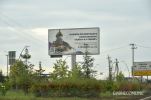 3/
3/ The Tatarstan government was also supposed to be paying for the cost of equipping the men. The thread below from documents their recruitment and training, prior to their deployment to Ukraine's Kherson region.
4/ A battalion member, whose name has not been disclosed, says that he suffered a traumatic brain injury during Ukraine's successful offensive in the Kherson region in September–November 2022 when a projectile exploded near him. The battalion was badly mauled in the offensive.
5/ "
We were standing 800 meters away from [the Ukrainians], holding the defence, so they wouldn't go [forward]. We could not storm in by ourselves: they stood on the heights, we were below, they could see us as if in the palm of their hand.
6/ A lot of people [from the battalion] were killed. Maybe half of them." He had previously served in the army during the Second Chechen War in 1999-2000, but found the Ukrainian war a far more difficult experience. "
This war [in Ukraine] is certainly tougher. Drones work here."
7/ "
We also have them, [Tatarstan] bought very expensive drones for us. But in the end [the Ukrainians] brought them down. We should come up with a way to prevent their drones from reaching us as well."
8/ "
As it turned out, we shoot down a drone with a machine gun, and literally within three seconds artillery, mortars, or rockets start coming [at us]. You can't attack or take cover, because thermal imaging cameras are operating. It is very hard to fight."
9/ The volunteer was paid 147,000 rubles by the Russian Ministry of Defence and was given a lump sum of 185–195,000 rubles when he volunteered, plus additional payments that brought his salary to over 200,000 ($2,589) per month.
10/ However, he had to buy all his equipment himself, including clothes, gloves, helmets, boots and so on, which cost around 60-70,000 rubles.
11/ The Tatarstan government seemingly didn't fulfil its promise to equip the volunteers, who have also complained that they received less money than the 250,000 a month they were promised.
12/ "
The guns were also problematic: they would start shooting and then would jam until you cleaned them. The [combat] equipment was made in 1973, 1978, 1964, it didn't even fire."
13/ "
When we entered [the Kherson region], we had ten pieces [of equipment], five pieces didn't even arrive. The rest broke down within a week, one [combat vehicle] more or less went back and forth and eventually stopped too."
14/ After retreating across the Dnipro, the volunteer received medical treatment for his concussion, but experienced ongoing health effects that left him unable to continue fighting. He and around 15 other volunteers decided to resign their contracts and go home.
15/ Although he says that, as volunteers, they were entitled to resign, the military treated them evasively. "
The chief of staff took one copy of the report for himself, removed it, put another one in, and the report was sort of "lost"."
16/ Ever since, they have been trying to find out why their discharge order has not been signed. They are in a kind of limbo: "We don't get paid, and we don't get dismissed. We have no status." Some returned to the front lines. Others were listed as deserters and investigated.
17/ The volunteer was lucky to have missed the Russian 'human wave' offensive against Vuhledar in early 2023, which he says has virtually destroyed the Alga battalion and its counterparts from Bashkortostan and Orenburg. He says:
18/ "
When I watch TV now I feel like spitting. They don't talk about it on TV, but on 6 February [during the offensive] towards Vuhledar, the Alga battalion was put down almost completely."
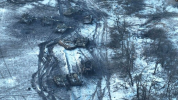 19/
19/ "
After that they put down the Orenburg battalion, the Bashkir battalion, where they were all volunteers. My comrade, who is in hospital now, says that there was no reconnaissance, there was no reconnaissance shelling.
20/ There were eight to ten men in each APC, and once they went [on the offensive], some didn't even realise what had happened [when they were attacked]."
21/ The disastrous attack was documented. Many Alga soldiers were captured by the Ukrainians. Relatives say at least two companies – which would mean 250-300 men – were killed.
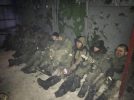 22/
22/ The volunteers attempting to resign from their contracts now face criminal prosecution, as the Russian state says that
Putin's mobilisation order of last September overrides the expiry of their four-month contracts.
23/ "In this case," argues a representative of the Union of Paratroopers, "
the contract of volunteers is extended for an indefinite period. Most likely, until the end of the special military operation."
24/ The volunteers and their lawyers dispute this, as they say it contradicts Russian federal law: "
The presidential decree [on mobilisation], according to the Constitution, cannot be higher than the federal law."
25/ The case may provide an important test of what remains of the rule of law in Russia. Which will be the deciding factor – the Russian constitution, or the decrees of Vladimir Putin? /end









